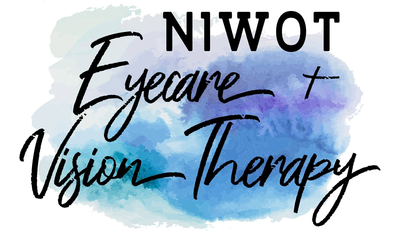Everyone's heard the adage that "the eyes are the window to the soul." But did you know that they can also be a primary window into the overall health of your body and mind ?
A comprehensive eye exam with our Niwot eye doctors can play an important role in the early detection of systemic diseases like diabetes and high blood pressure, and may help ward off depression and other emotional and psychological conditions.
Eye Exams and Whole-Body Health
Health care statistics indicate that people are as much as 3 times more likely to schedule a yearly eye exam for themselves and their children than a visit to their physician for a routine physical. This makes it much more likely that the very first indications of serious health conditions will be found during the course of a routine eye exam.
Systemic issues that can often be detected by your local optometrist include:
- Diabetes
- Cancer (certain kinds)
- High blood pressure
- High cholesterol
- Heart disease
- Multiple sclerosis
These conditions are often detected by evaluating the blood vessels inside the eye for damage or plaque build-up, and checking for bleeding in the retina or other internal eye structures. Your eye doctor may also check for symptoms such as blurry vision or unresponsive pupils, as these can be a sign of neurological problems.
Healthy Eyes and Mental/Emotional Health
Annual comprehensive eye exams are also an important part of maintaining your family's mental and emotional health, since vision deeply impacts general wellbeing.
For children, eye exams ensure that they're meeting their developmental milestones and are able to see what's going on in school and at play. This helps boost their confidence while learning, and makes their extracurricular activities more accessible and enjoyable. Being unable to see what's written on the classroom board or to catch a ball due to poor eyesight or visual skills deficits can affect a child's self-esteem.
For adults in their 40's, yearly checkups become an important part of detecting conditions such as presbyopia, or age-related farsightedness. Adjusting eyeglasses and contact lens prescriptions to address these conditions prevents difficulties with reading and other activities that may reduce quality of life.
In a person's 50's, 60's, and 70's, conditions such as macular degeneration, glaucoma, and cataracts become much more prevalent. Diagnosing and treating these and similar conditions early on can prevent significant vision loss, which multiple studies have linked to depression and increased risk of conditions such as Alzheimer's and dementia.
Want to learn more about how our Niwot eye doctors can help keep your body and mind healthy? Come visit Niwot Eyecare and Vision Therapy, or give us a call at 303-529-1125, today.

